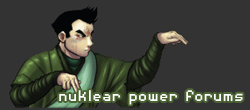|
Originally Posted by Wikipedia
Through much of the Golden age of comic books, Captain Marvel proved to be the most popular superhero character of the medium with his comics outselling all others, including those featuring Superman. In fact, Captain Marvel Adventures sold fourteen million copies in 1944,[7] and was at one point being published weekly with a circulation of 1.3 million copies an issue (proclaimed on the cover of issue #19 as being the "Largest Circulation of Any Comic Magazine").[6] Part of the reason for this popularity included the inherent wish-fulfillment appeal of the character to children, as well as the humorous and surreal quality of the stories. Billy Batson typically narrated each Captain Marvel story, speaking directly to his reading audience from his WHIZ radio microphone, relating each story from the perspective of a young boy.
Detective Comics (later known as National Comics Publications, National Periodical Publications, and today known as DC Comics) sued Fawcett Comics for copyright infringement in 1941, alleging that Captain Marvel was based on their character Superman. After seven years of litigation, the National Comics Publications v. Fawcett Publications case went to trials court in 1948. Although the judge presiding over the case decided that Captain Marvel was an infringement, DC was found to be negligent in copyrighting several of their Superman daily newspaper strips, and it was decided that National had abandoned the Superman copyright.[8] As a result, the initial verdict, delivered in 1951, was decided in Fawcett's favor.
National appealed this decision, and Judge Learned Hand declared in 1952 that National's Superman copyright was in fact valid. Judge Hand did not find that the character of Captain Marvel itself was an infringement, but rather that specific stories or super feats could be infringements, and that the truth of this would have to be determined in a re-trial of the case. The judge therefore sent the matter back to the lower court for final determination.[8]
Instead of retrying the case, however, Fawcett decided to settle with National out of court. The National lawsuit was not the only problem Fawcett faced in regards to Captain Marvel. While Captain Marvel Adventures had been the top-selling comic series during World War II, it suffered declining sales every year after 1945 and by 1949 it was selling only half its wartime rate.[9] Fawcett tried to revive the popularity of its assorted Captain Marvel series in the early 1950s by introducing elements of the horror comics trend that gained popularity at the time.[10] Feeling that a decline in the popularity of superhero comics meant that it was no longer worth continuing the fight,[11] Fawcett agreed to never again publish a comic book featuring any of the Captain Marvel-related characters, and to pay National $400,000 in damages.[12] Fawcett shut down its comics division in the autumn of 1953 and laid off its comic-creating staff. Whiz Comics had ended with issue #146 in June 1952, Captain Marvel Adventures was cancelled with #150 (November 1953), and The Marvel Family ended its run with #89 (January 1954).
|



